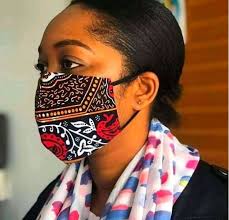Anthony Iwuoma
President Muhammadu Buhari, on Monday, approved easing the lockdown imposed on places of worship as a measure to curb further spread of the COVID-19 pandemic.
The approval is in accordance with guidelines issued by the Presidential Task Force (PTF) on COVID-19 and the protocols agreed by states.
The Chairman of PTF and Secretary to the Government of the Federation, Boss Mustapha, disclosed the latest development at the daily press briefing in Abuja, yesterday.
Consequently, places of worship, such as churches and mosques are now free to reopen on the condition that worshippers must wear masks and properly sanitise their hands.
Moreover, they must strictly adhere to the PTF guidelines on physical distancing and observe other health guidelines to stem the spread of virus.
The president did not only permit financial institutions to open five days a week, he also relaxed the total lockdown of Kano State.
However, the ban on the gathering of more than 20 people outside of place of work; a managed access to markets and locations of economic activity to limit the risk of transmission; and ban on inter-state travels except for the movement of agricultural produce, petroleum products, manufactured goods and essential services providers remain in force over the next one month.
Mustapha insisted on mandatory use of non-medical face masks in public places, provision of hand-washing facilities/sanitisers in all public places, temperature checks in public places, maintenance of physical distancing in public places, strengthening infection prevention and control at healthcare facilities, and isolation of vulnerable populations.
The SGF said: “COVID-19 is still a fight for life and our advancement to phase two does not mean that COVID-19 has ended as Nigeria has not reached the peak of confirmed cases.”
However, he added: “The PTF, in reaching its conclusions and making recommendations for next steps of the response, remained mindful of the following important socio-economic issues: impact of COVID-19 on the global economy and all national economies; pain and hardship brought upon the poor and vulnerable, the aged, the sick, people living with disabilities, and particularly those whose survival depends on their daily earnings; the impact of the closure of schools and tertiary institutions; avoidable death of citizens occasioned by the decline in the level of availability of medical services to citizens due to the closure of medical facilities, rejection of patients by hospitals and fear of stigmatization; and the level of infection of frontline workers and its implications for the national response.
“The battle against COVID-19 is a long-term one. Nigeria should pursue a strategy that will aid the sustainable control of the spread of the disease.”


